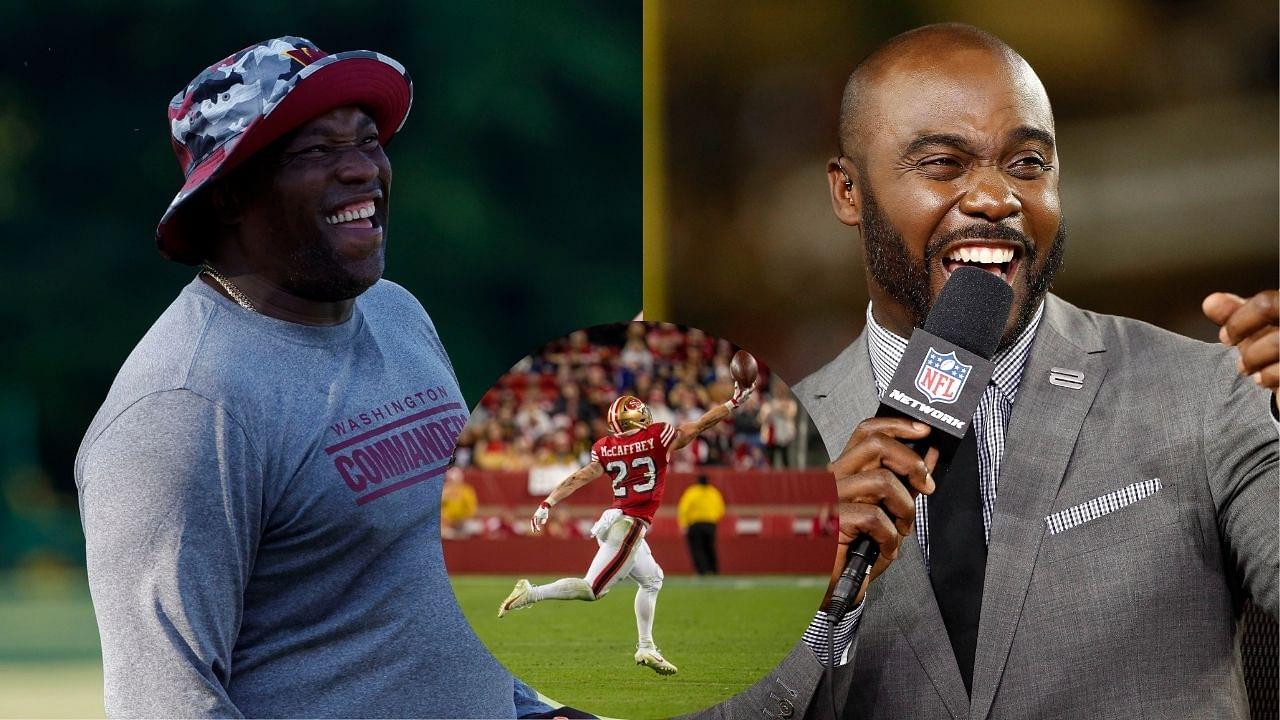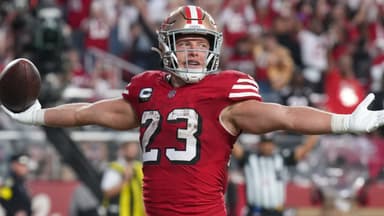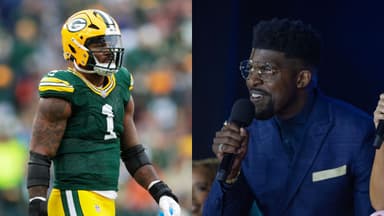There’s a concerning trend in the NFL regarding running backs. The average running back salary hovers around $1.79 million, ranking as the fifth lowest, with long snappers earning the least at $1 million. The highest-paid running back is Christian McCaffrey who makes $16 million, but there are many each season that are treated like fossils hanging on hope. On the “Fearless” podcast, Jason Whitlock, Warren Sapp, and Marshall Faulk delve into the current state of running backs.
Advertisement
Former NFL running back, Marshall Faulk, provided insights into justifying the peculiar dynamics influencing the running back landscape and he has a unique perspective to offer. Jason Whitlock initiated the discussion by highlighting the diminished value of running backs in the NFL. He pointed out their continued significance for teams and questioned what actions should be taken.
Marshall Faulk expanded on the point, noting that the running back position is unique in its depreciation over the years in monetary terms. Some owners prefer allocating more funds to other positions, contributing to the decrease in the average pay for running backs. Warren Sapp added his perspective, suggesting that it’s not the pay scale that is regressing. Rather, it’s the players in the running back position that have taken the position backward.
“I’ll just do it this way Marshall, name me one (running) back other than Christian McCaffrey that you have to worry about on first, second, or third down?” asked Warren Sapp.
Faulk reflected on his own approach, stating, “When I started playing this game, the guy behind me was good enough to get the job done. So, I’mma stay on the field as much as I can because I don’t want nobody else doing my da*n job,”
Marshall Faulk continued the conversation with a harsh reality check. He pointed out that the running back position has been devalued by the players themselves due to their willingness to exit the game frequently. Nowadays, running backs make a few hits and then rotate out, allowing another player to step in.
Marshall Faulk’ Advice Comes After Top Running Backs Sat Together To Address Compensation Challenges
While Marshall Faulk highlighted that the willingness to share the Running Back position contributes to the challenges faced by these players, several players held a private Zoom meeting before the season started to discuss the said situation, per ESPN. Running backs were not receiving the desired compensation which led some of the NFL’s best to convene on a private meeting organized by the Chargers’ Austin Ekeler.
Can someone please explain this? pic.twitter.com/e9XgywpOF9
— Dez Bryant (@DezBryant) July 18, 2023
The big guns included in the meeting were Christian McCaffrey, Nick Chubb, Saquon Barkley, Josh Jacobs, and Derrick Henry. The discussion didn’t yield tangible action steps despite the frustration expressed on social media, followed by remarks from running backs concerning their declining value to NFL teams.
The purpose was for players like Ekeler to voice their concerns while also discussing future strategies to improve the market. The next step involved the agents of this coalition holding their own call to establish better communication and strategy for running backs seeking new contracts.
Not much has changed since then despite these efforts. However, if running backs heed Marshall Faulk’s advice and adapt his approach, many might avoid facing this issue next season. Christian McCaffrey stands as an example, showcasing the significant impact a running back can have and earning recognition in MVP conversations.








